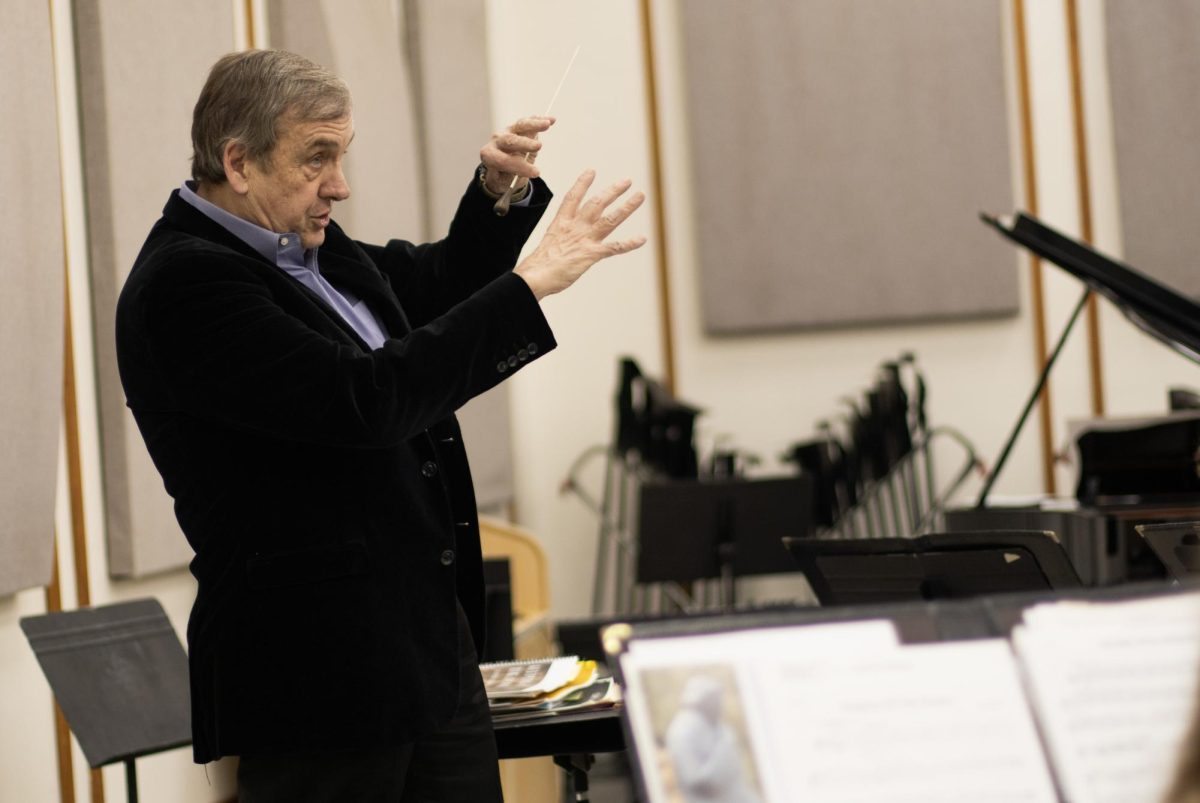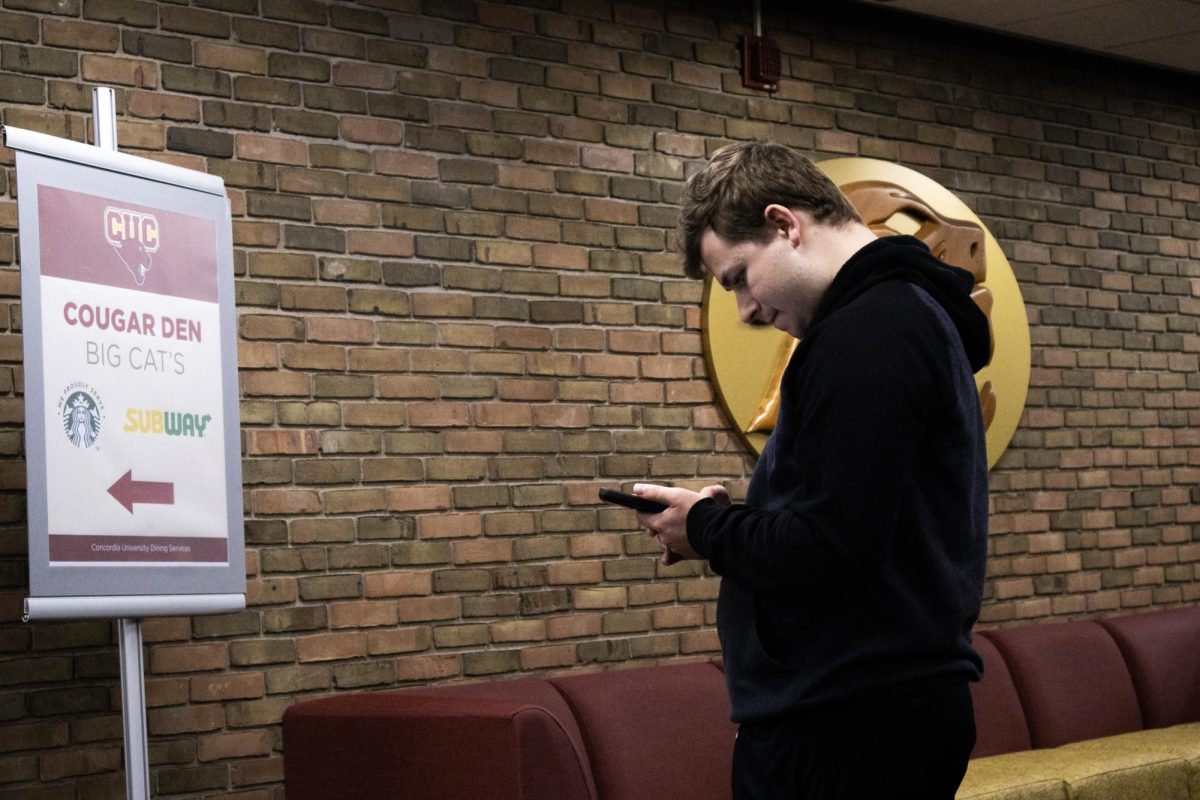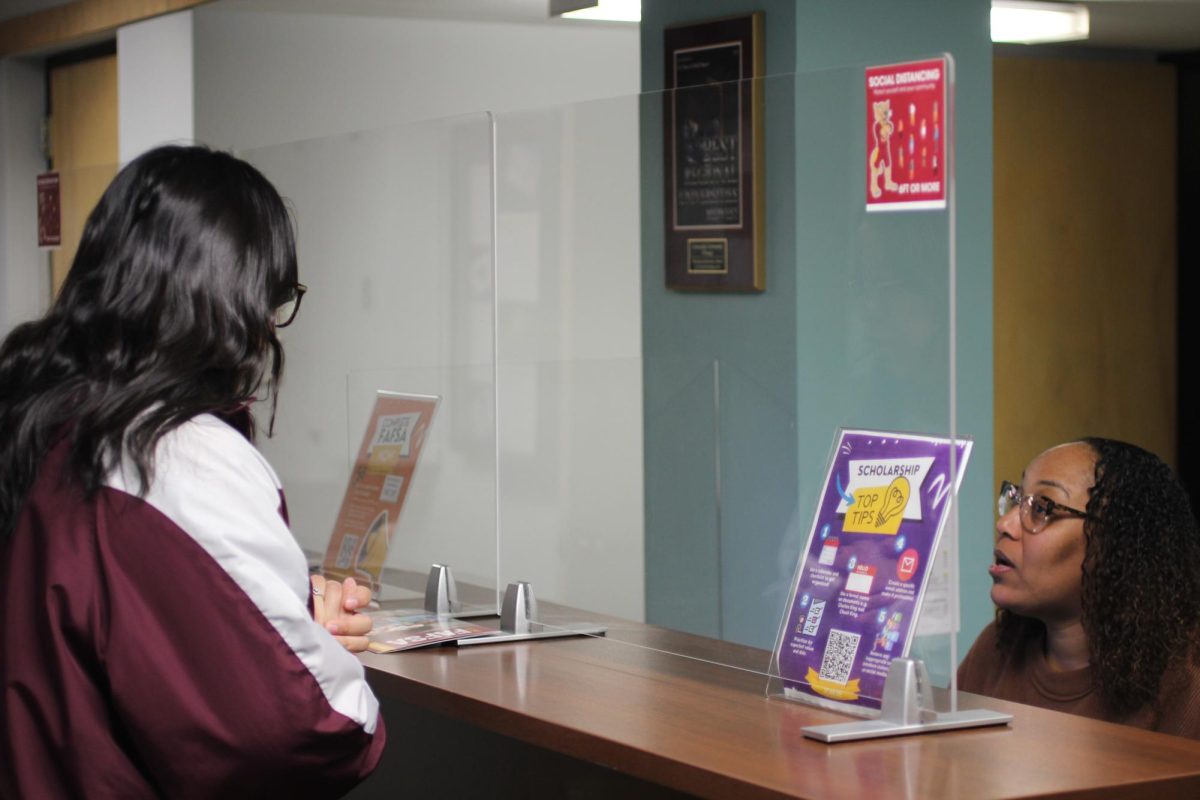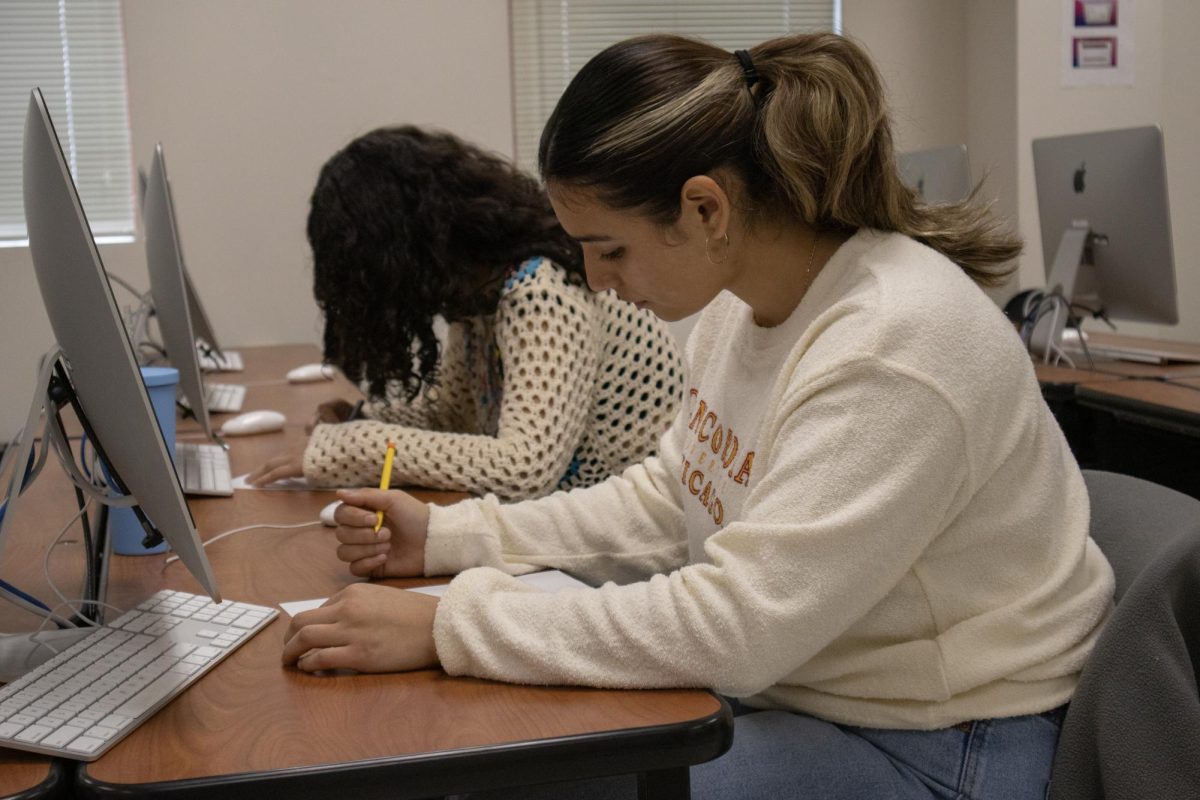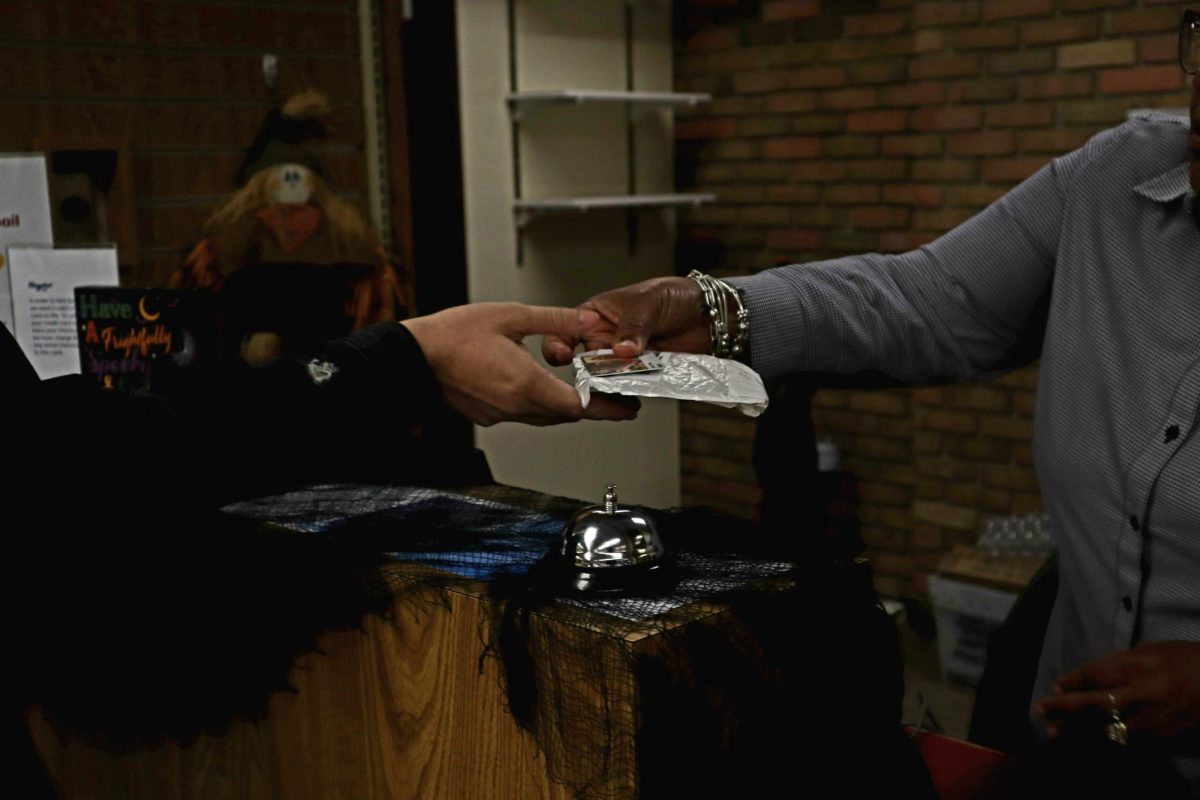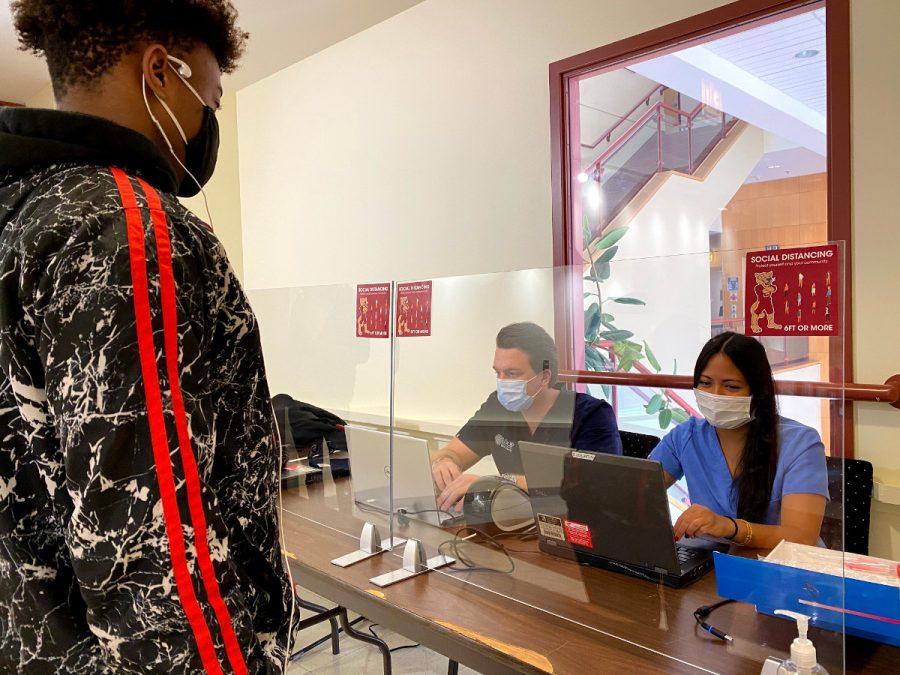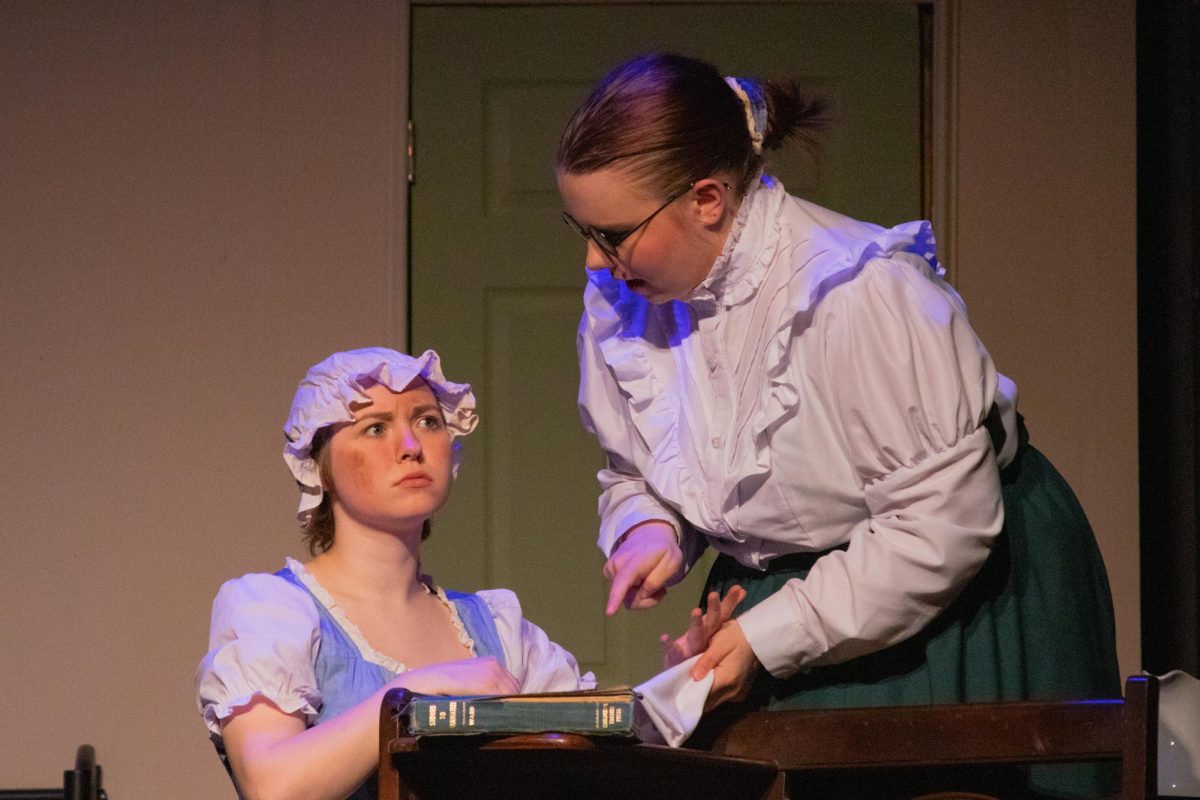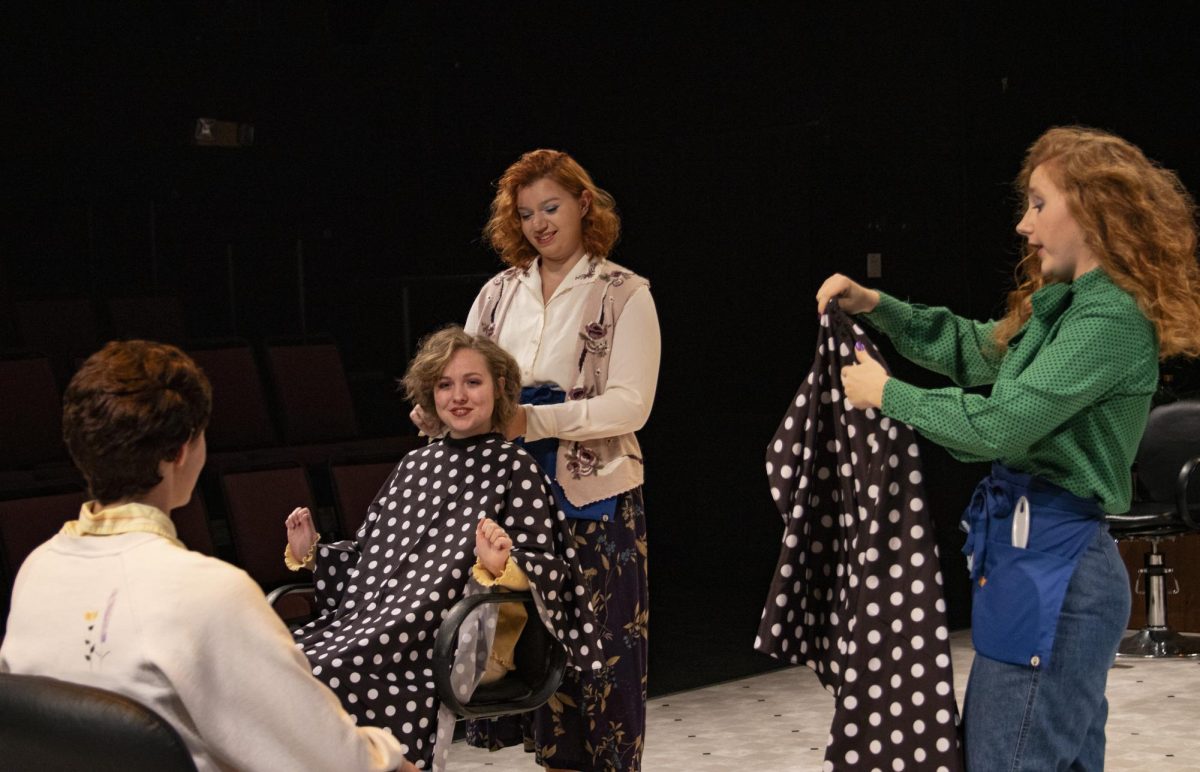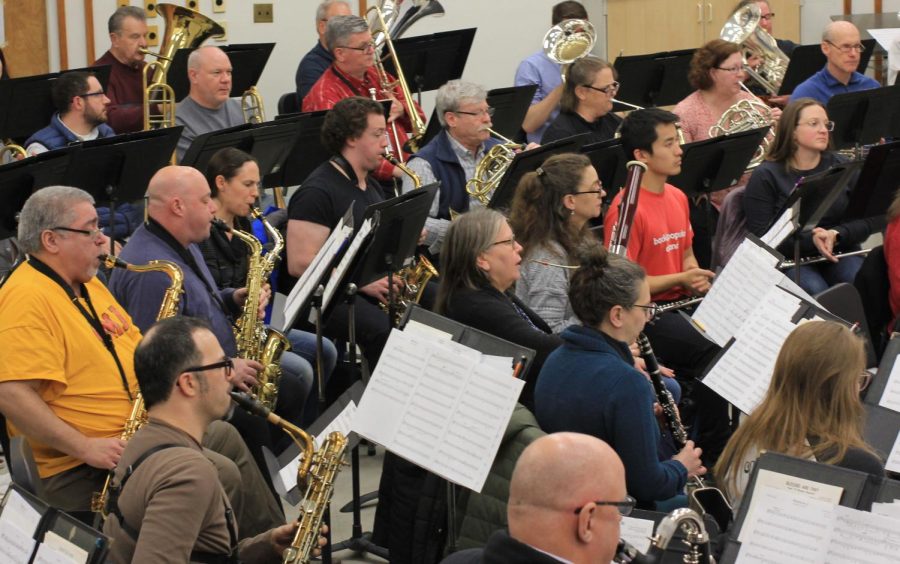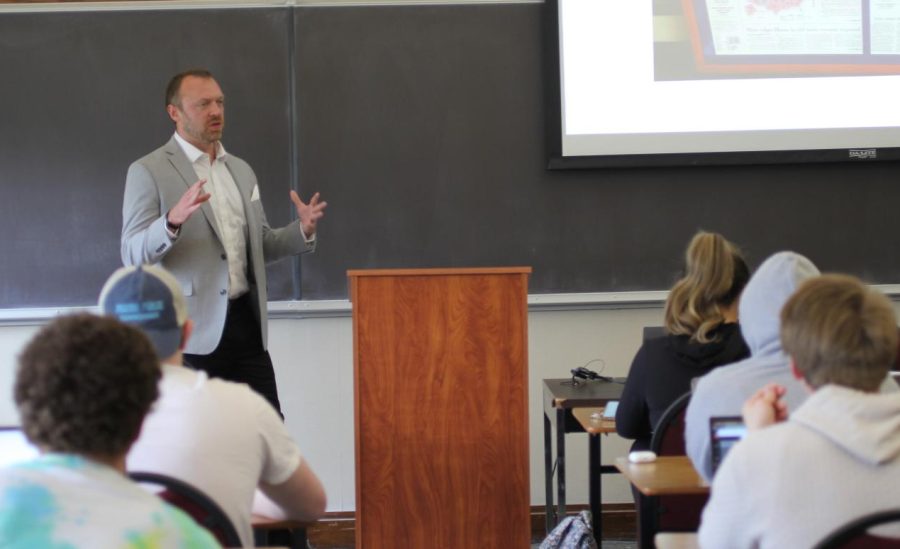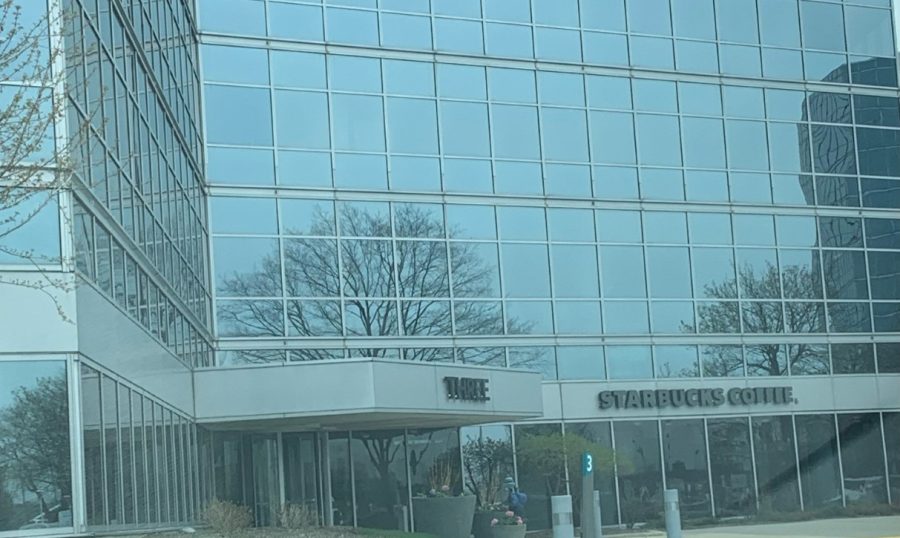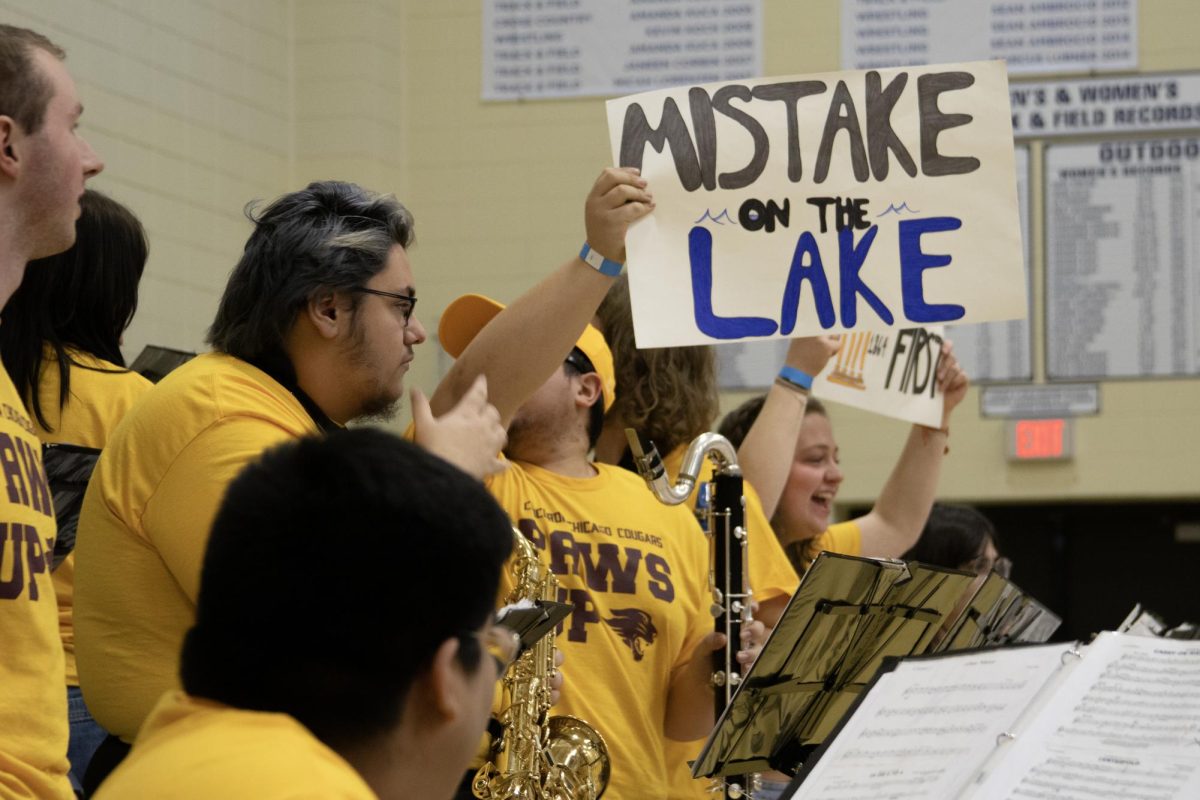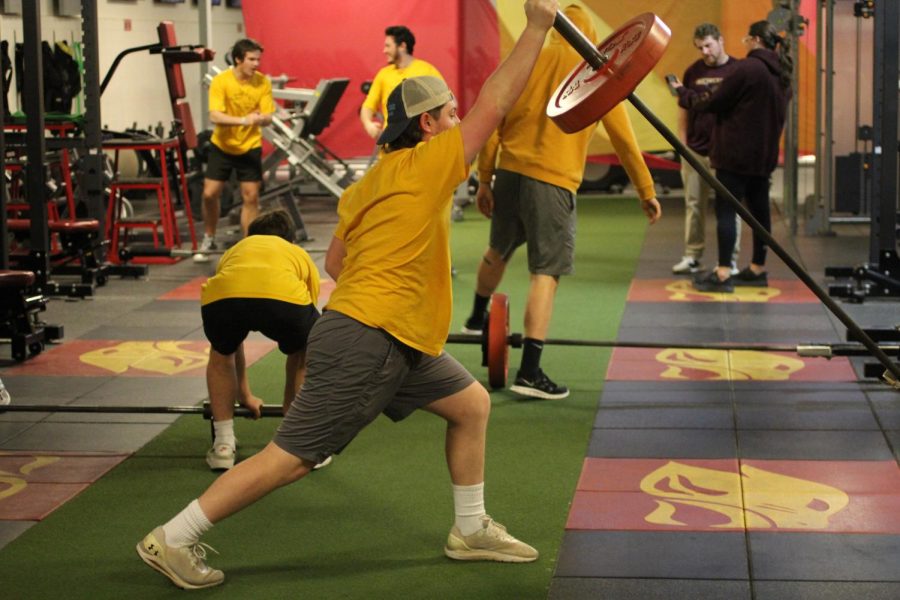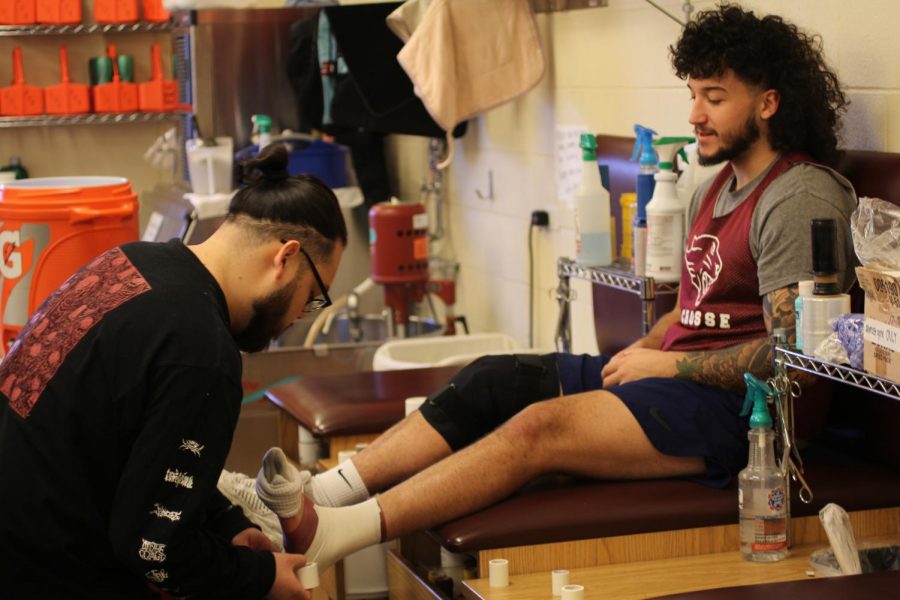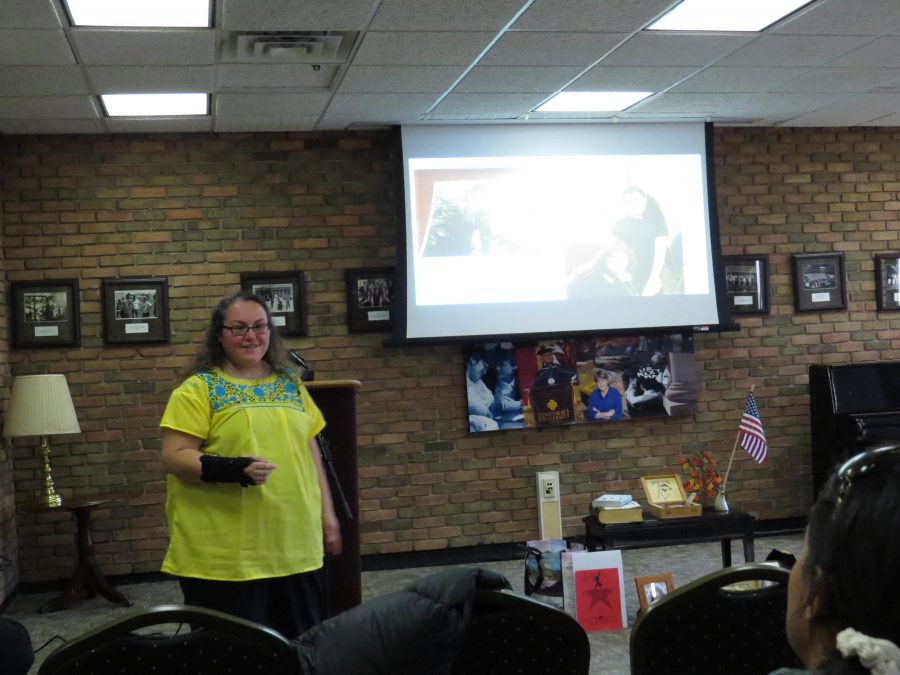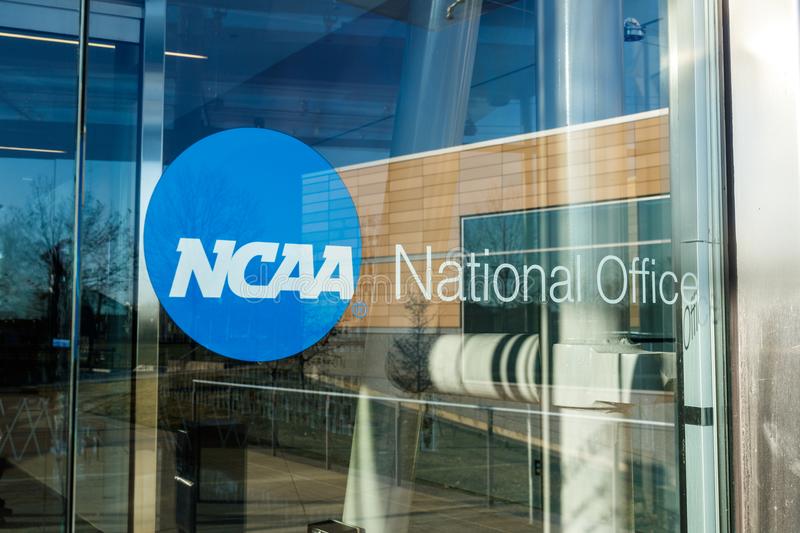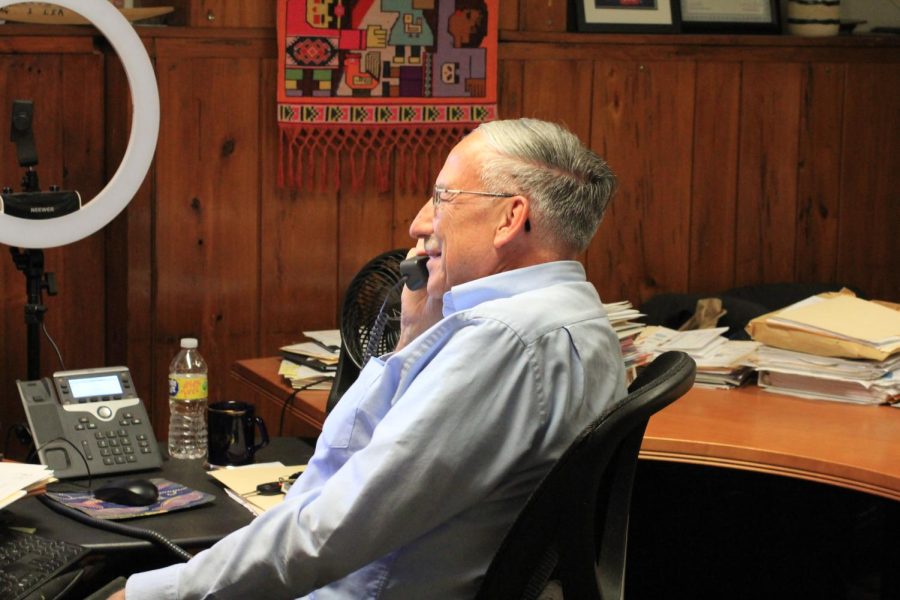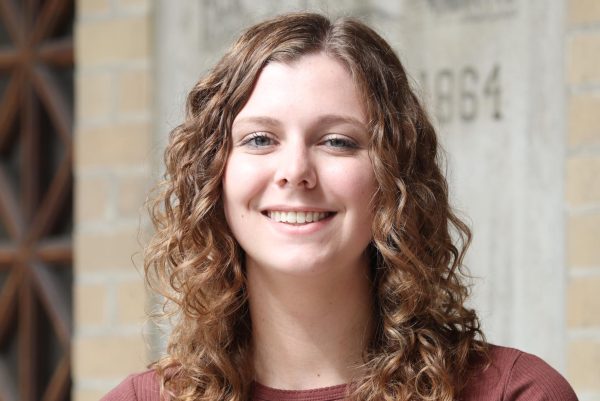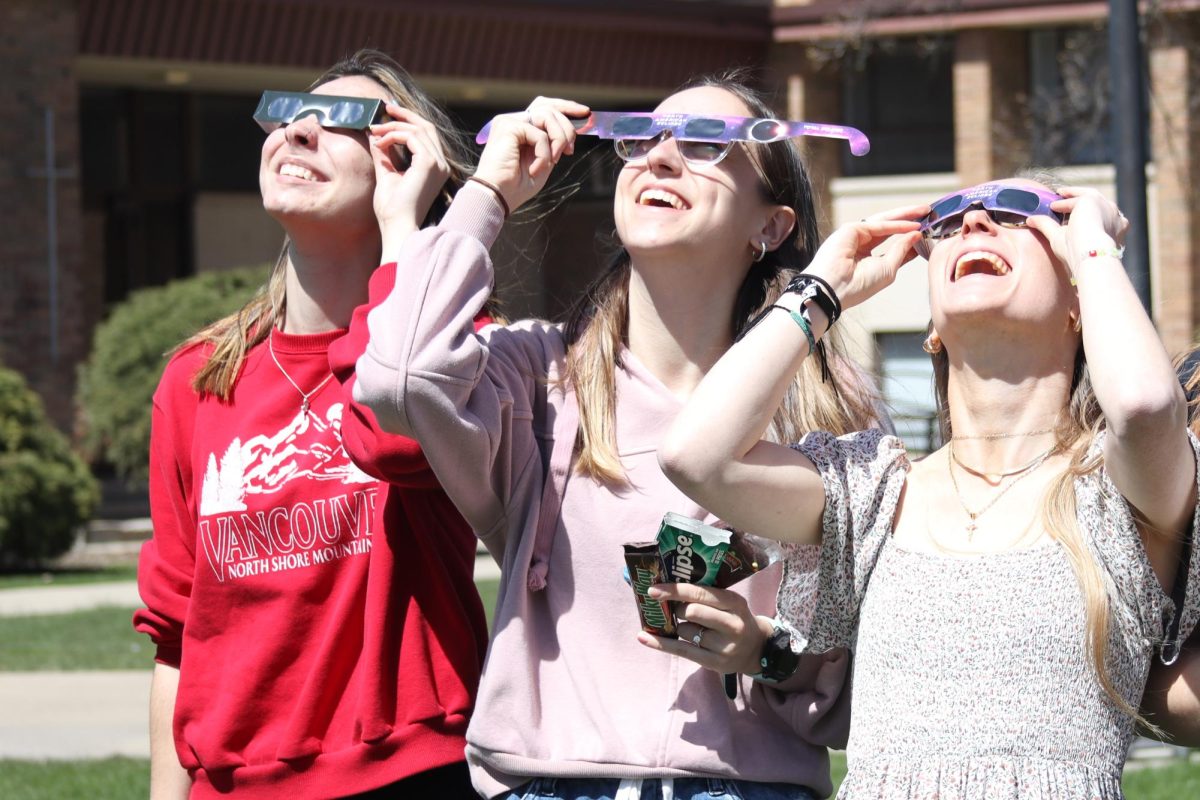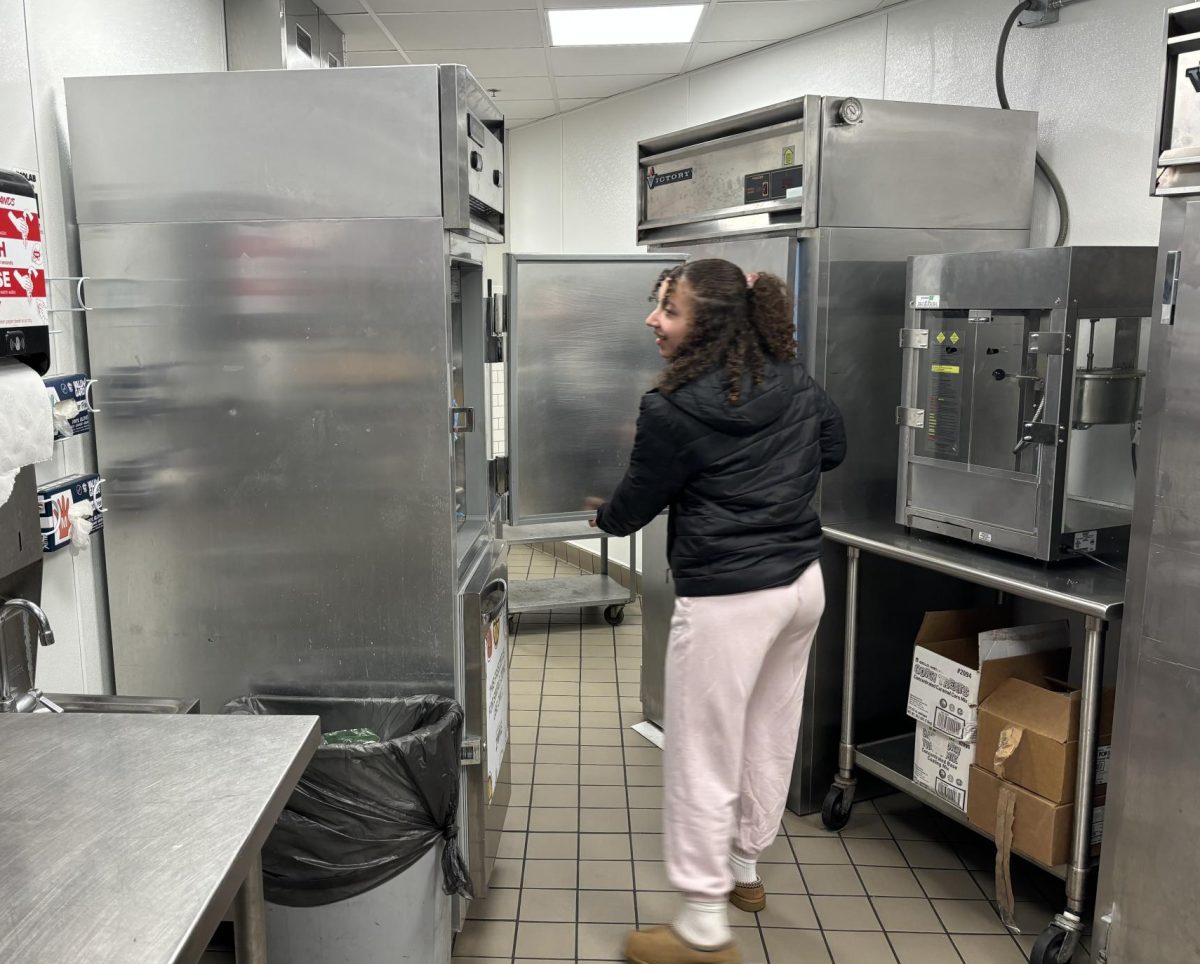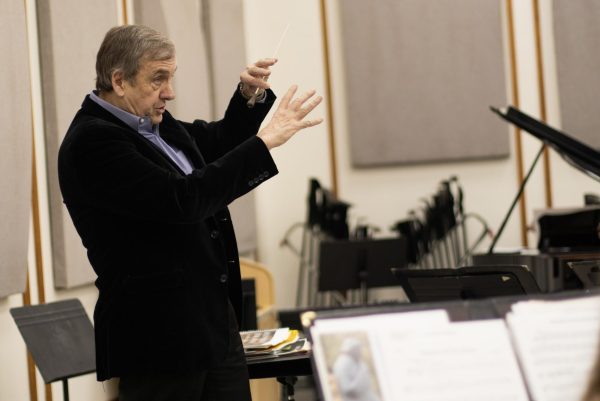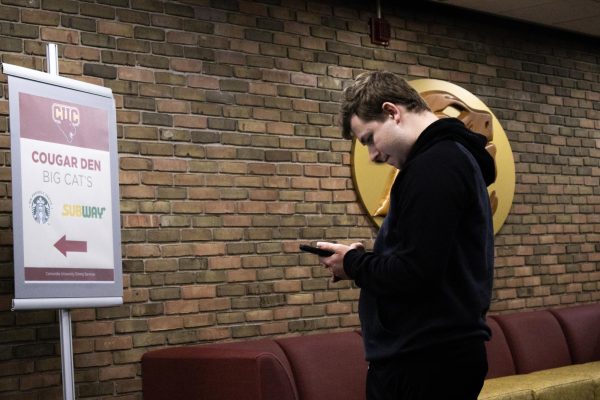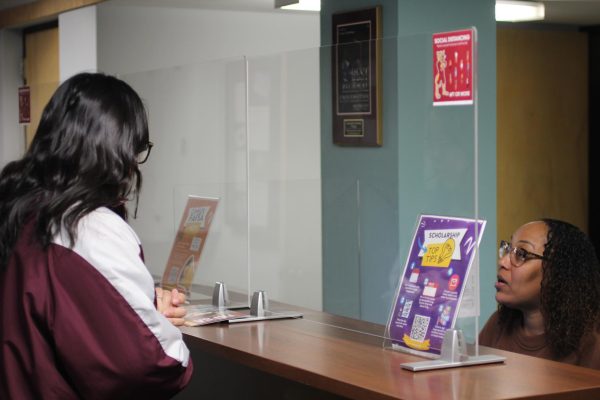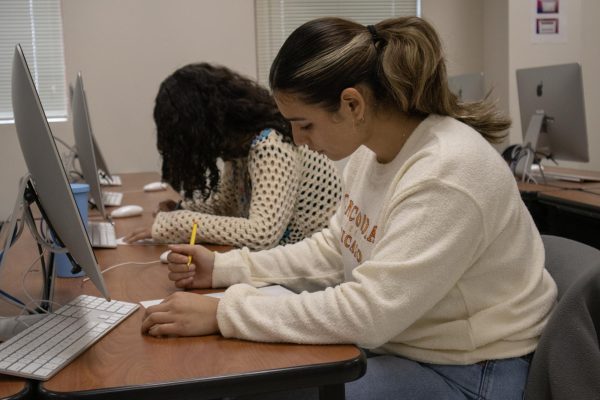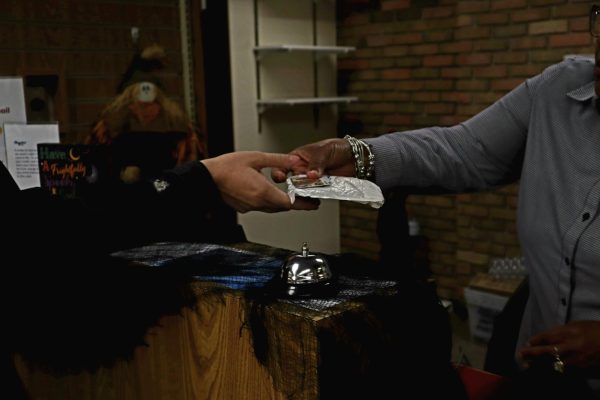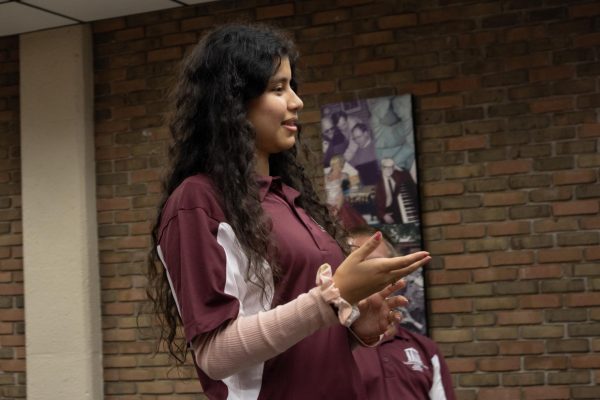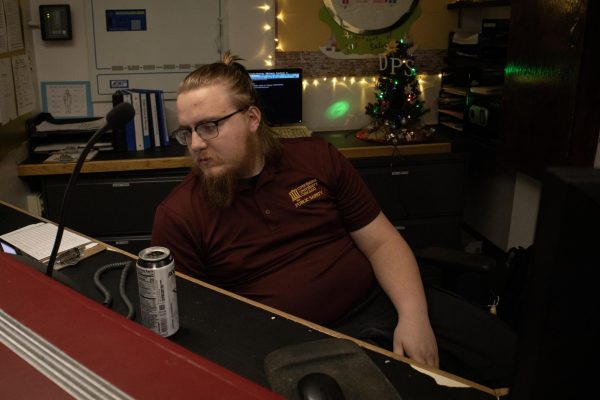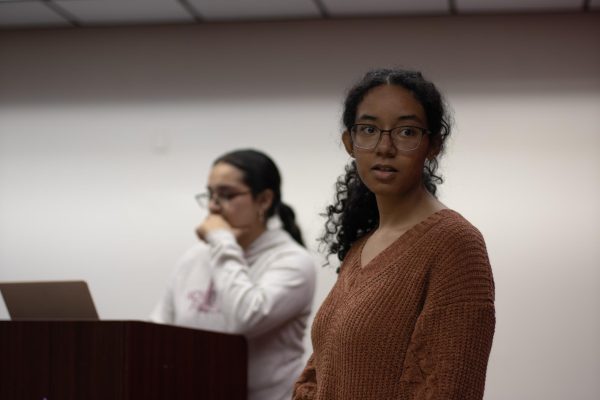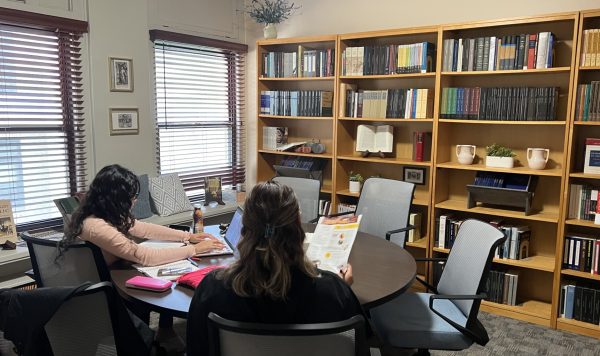Lutheran Education Association Equips Educators for Success
Lutheran Education Association executive director Jonathan Laabs works in his office in the basement of Kohn Hall on Feb. 24.
April 17, 2023
When Jesse Schultz prepares for a long day in the classroom as a student teacher at Christ Community Lutheran School in St. Louis, he always reads the daily devotions emailed by the Lutheran Education Association (LEA). Through these brief Bible passages and accompanying commentary, the CUC senior feels connected with teachers across the country who are starting their days in the same way.
Those emails come from the LEA office tucked away on the CUC’s campus, in the basement of Kohn Hall. Although the office has relocated multiple times — from the West Annex, in the advancement office, and near the financial aid office — the Lutheran Church’s organization devoted to primary and secondary educators has always been based at CUC. LEA is not an entity run by CUC, but a separate organization altogether that is based on CUC’s campus.
Because LEA is located on CUC’s campus, Schultz had already connected with the organization during his time in college.
“These devotions provide much-needed encouragement and Scriptural reflections as I prepare for a full day of teaching,” said Schultz. “God works through this resource to set the tone for my day as I prepare to share Christ’s love with my students.”
The LEA was founded 81 years ago as a professional organization to support educators teaching in Lutheran schools.
“We love being on campus,” said Jonathan Laabs, Ed.D., the executive director of LEA. “We love being close to students and taking part in daily activities.”
Being a member of LEA grants access to bi-weekly news reports, weekly devotionals, webinars from educators around the world, access to extensive archived resources, discounts to LEA’s events, and much more.
“LEA offers an abundance of in-person and online professional development opportunities, which are so important for helping teachers find and incorporate new resources, teaching methods, and ideas into their classrooms,” said Laura Piel, 2011 CUC graduate and current teacher at Trinity Lutheran School in Roselle.
One of these development opportunities is the LEA Convocation, which occurs every three years. Lutheran teachers, administrators, and organizations connect with one another and exchange useful resources. Representatives from the Concordia University system attend as well. The most recent Convocation was held in Milwaukee this past October, with an attendance of around 3,000 people.
Schultz had the opportunity to attend Convocation this past year. After attending, he felt more confident about becoming a teacher. “I was filled with excitement and courage for my vocation as a Lutheran teacher,” said Schultz. “I know that I have an incredible community of educators who will be walking with me every step of the way.”
Schultz was able to attend the LEA Convocation through his involvement with LEA during college. While most members of LEA are current teachers, college students have the opportunity to get involved as well. College students receive free membership which includes access to all of the resources and benefits regular members receive.
College students have the opportunity to attend Convocation for free through the “Grow a Teacher” program. Ten students are able to attend from each school in the Concordia University system, which allows these students to connect with teachers in their field and discover what attending this event as a teacher would be like.
“You become a professional when you are in college, it starts before you graduate,” said Laabs.
Laabs graduated from CUC in 1980 with a masters degree in education and administration. He was first a classroom teacher at a school in Texas, and has also served as an assistant principal and as a principal during his career. After this, he was the director of teacher education at Concordia University Ann Arbor.
Laabs has been a member of LEA since the very beginning of his career. He eventually began to serve within the organization in different capacities, and accepted the full-time position of executive director in 1997.
Their location on CUC’s campus offers unique opportunities for both the organization and students alike. The office is able to hire student workers, and students are able to get involved in ways not available at any other school.
Teachers within the education department take advantage of the close proximity to LEA. Lutheran Teacher Education (LTE) students get a taste of what LEA is about during their “Lutheran Teacher: Vocation and Methods” course. This course is offered to junior and senior LTE students as they prepare for student teaching.
They take an on-campus “field trip” down to the office in the Kohn basement and learn about what LEA does and the benefits members receive. Some students even register for free membership during their visit, and join the vast community of members around the world. After graduation, the starting regular annual membership fee is $144 per year.
“At its core, LEA is all about community,” said Schultz. “This organization provides endless love, encouragement, and prayers for Lutheran teachers around the world.”
LEA helps to equip educators who do not have a Lutheran background. Lutheran school teachers are not required to have a Lutheran education or background, but it is easier for them when they do, according to Laabs.
LEA aims to fill in the gaps that may exist for a teacher who did not receive a Lutheran education. They work to educate teachers on how to teach in a Lutheran setting. One goal of LEA is to make sure educators know that Lutheran schools can be for anybody, not just those who grew up in the faith.
“LEA supports Lutheran educators who graduated from schools in the Concordia system, but they also provide services for educators teaching in Lutheran schools who didn’t come from Lutheran backgrounds,” said Jared Stiek, LTE program leader and interim assistant dean in the College of Education. “LEA supports these educators and connects them with mentors and people in the field to help them.”
Stiek has seen first hand the benefits students and professionals receive when they are LEA members. Through his position, he is heavily invested in the education program, and coordinates their student teaching placements as well.
The focus of LEA is to offer resources for classroom teachers, such as devotions, blogs and articles. Lutheran educators and church workers across the world contribute to the content shared by LEA, whether it be through writing or video presentations.
While the resources aren’t targeted towards principals and school administrators, they are able to enjoy the benefits of LEA through how it helps their staff.
“I am grateful for all that LEA does,” said Mike Oldenburg, former LEA Board of Directors member and current executive director at Journeys Lutheran School in Wisconsin. “It allows teachers to be connected to friends and coworkers, teaches them things they can use in their ministries, and energizes and uplifts them.”
Laabs encouraged all students to visit the LEA office in the basement of Kohn hall to learn about becoming a member, or simply to connect with the organization.

